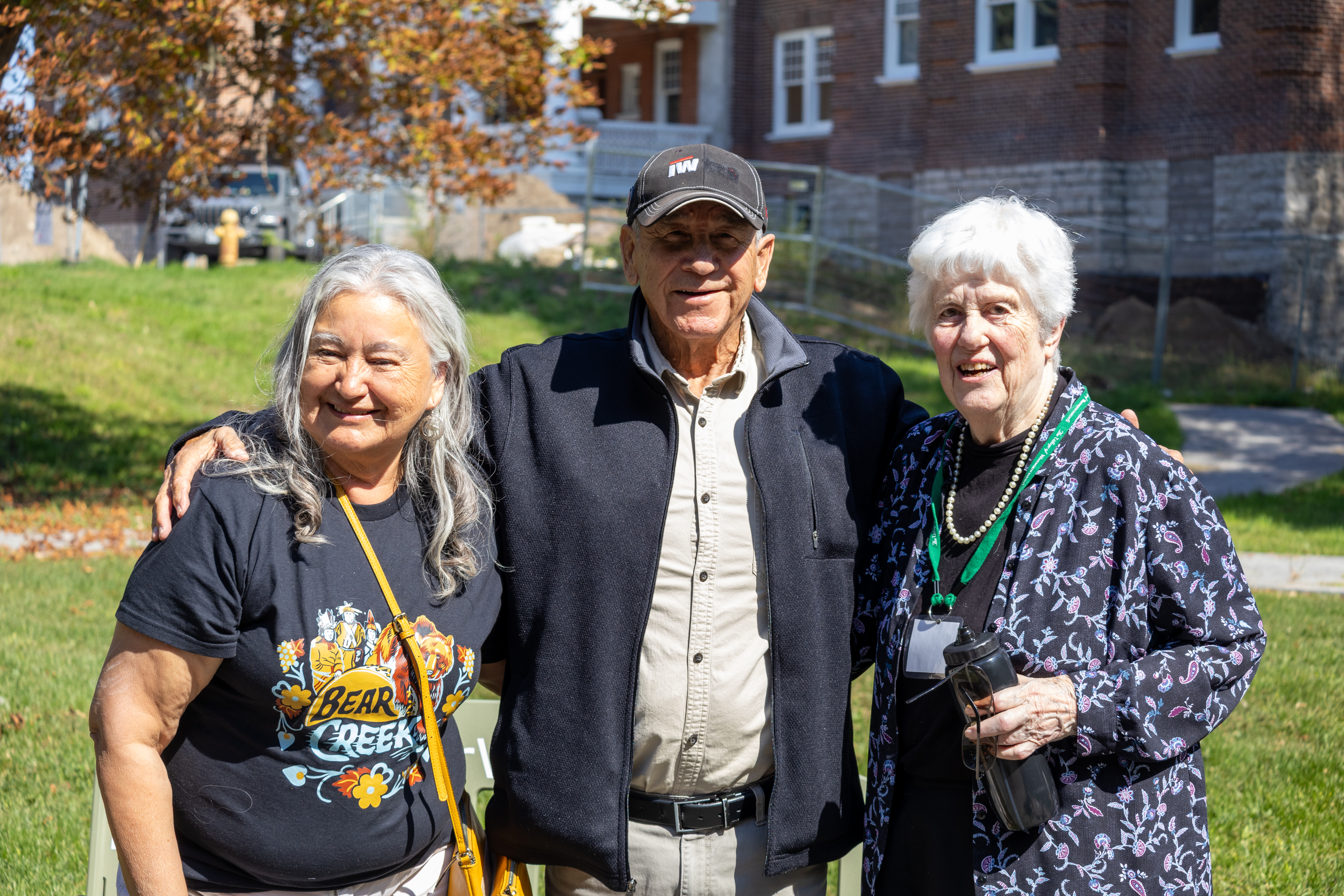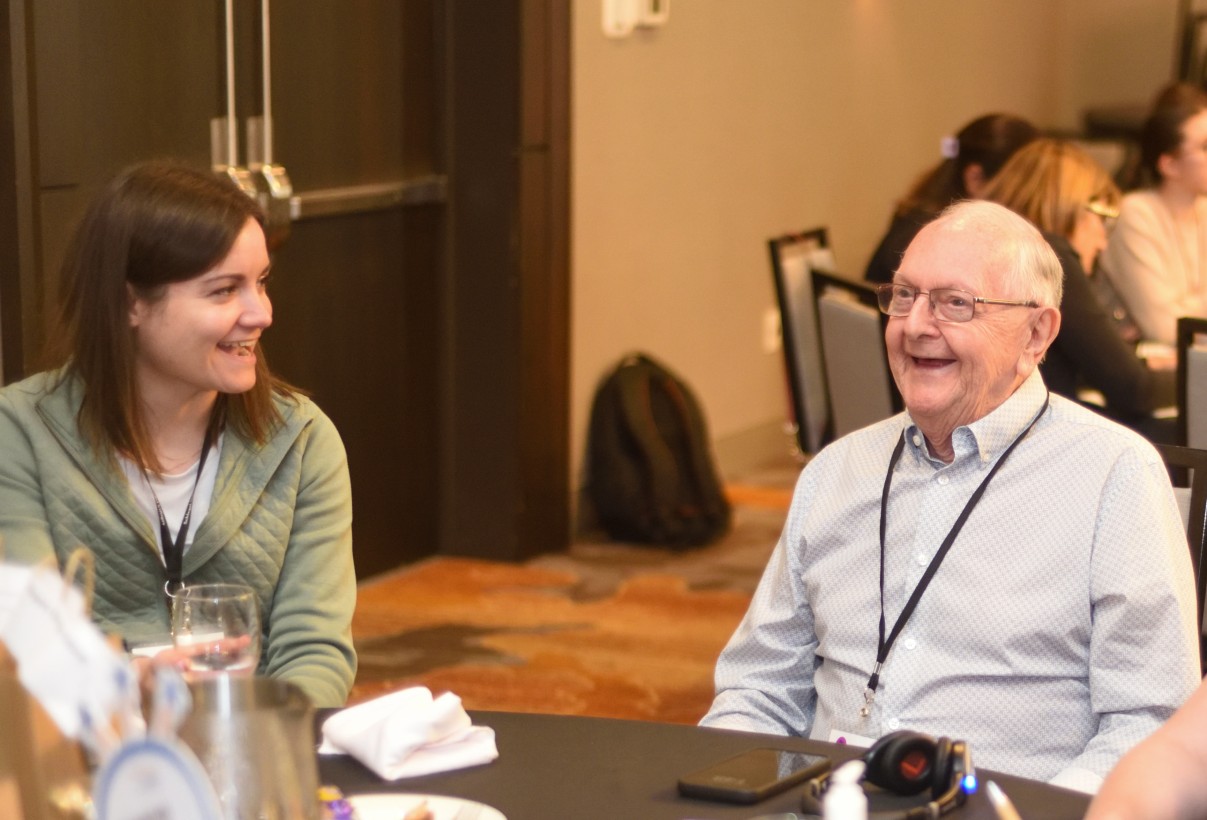Collaboration and communication key to progress, says Dr. Jennifer Carson
By Kristian Partington
April 2 was a day of reflection and pride for a group of people gathered at The Village of Winston Park to listen to a familiar guest speaker talk about the progress Schlegel Villages has made on its journey to change the culture of aging.

A host of research partners joined Dr. Jennifer Carson at The Village of Winston
Park to celebrate six years of research into the changing culture of aging.
The guest speaker was Dr. Jennifer Carson, fresh off the heels of a successful defence of her doctoral dissertation at the University of Waterloo. It was 2009 when Jennifer helped launch the concept of culture change within Schlegel Villages from her base at the Schlegel-UW Research Institute for Aging (RIA). By promoting a broad, collaborative discussion among residents, team members and families about what needs to be done to “put living first” in the villages, she aimed to replace an institutional model of care with a social model of living.
This process, based on the concept of Participatory Action Research, formed the basis of Jennifer’s doctoral studies and guided the organization towards marked improvements in all aspects of life quality, as determined through regular resident surveys.
In short, life for residents and team members today encompasses more meaningful relationships, flexibility, and sense of community compared to the more common, institutional nature of seniors’ care that tends to dominate much of the sector. As Jennifer spoke to an audience of around 50 people during her presentation, her praise was effusive. Essentially, the progress the organization has made would not be possible were it not for a true commitment to open communication and collaboration, Jennifer says.
“The thing that surprised me the most was this idea of opening a communicative space,” Jennifer says. “I could read about it, this idea of opening a space and this idea that change can happen . . . but to me, this was a leap of faith. Having never experienced a change initiative where you didn’t really have anybody calling the shots, how was change going to happen?”
She credits the Support Advisory Team (SAT), which brought several different views from family members, team members and residents together regularly, with opening that space and leading the critical discussions that began and sustained the culture change journey.
Carl Saunders was a family member who joined the first SAT, carrying a healthy dose of skepticism with him in those early days. He figured at the time that the type of change they described required a massive injection of financial and human resources.
As he became more engaged in the process, however, he began to see the possibilities that exist in simply looking at things from new perspectives, and his views were transformed. Following Jennifer’s presentation last week, Carl reflected on the past six years while looking ahead to the future of aging in Canada.
“I can’t believe the difference,” says Carl, whose wife now lives at the Village of Erin Meadows in Mississauga, where his parents lived before their passing. “It was six years ago and look what’s happened. I was a skeptic when I went in. I ran my own business for 40 years and I knew about employees . . . and I thought, there’s no way.”
Yet, the organization’s leadership team supported the process entirely, Carl says, and Jennifer championed a collaborative approach that sought the expertise of all stakeholders, and that has made all the difference. He says he was proud to play a part in a process that has continued to gain momentum as the years have rolled by, and he continues to volunteer his time with the Village Advisory Team at Erin Meadows.
Carl’s support and friendship, like that of so many others connected to Schlegel Villages and the RIA, is a prime example of the connections that defined Jennifer’s research over the years; it is these types of relationship that will carry culture change forward.
- Previous
- View All News
- Next






























































































































































































































































































































































































































































































































































